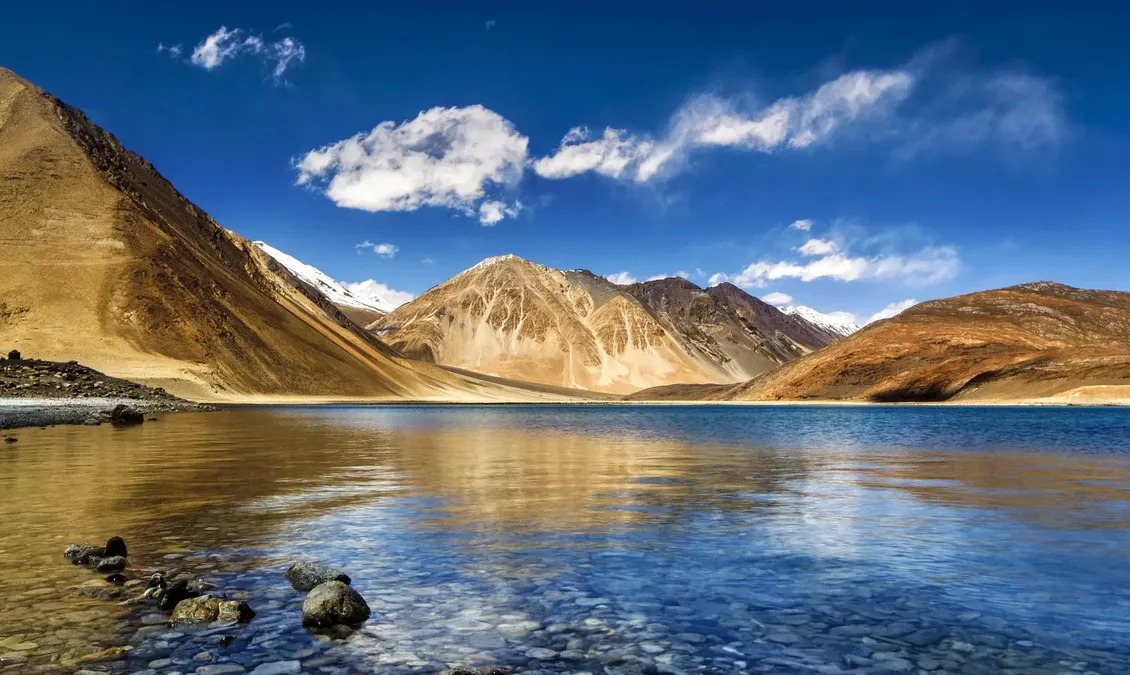¤ 10+ minutes Read
Places to visit in Leh
Nestled in the lap of the Himalayas, is a land of monasteries, palaces, and pristine landscapes. From the serenity of ancient gompas to the thrill of high-altitude passes and shimmering lakes, the city offers a perfect blend of spirituality, adventure, and natural beauty. A journey through Leh is truly a journey through time and tranquility.
Wiki Link: Places to visit in Leh
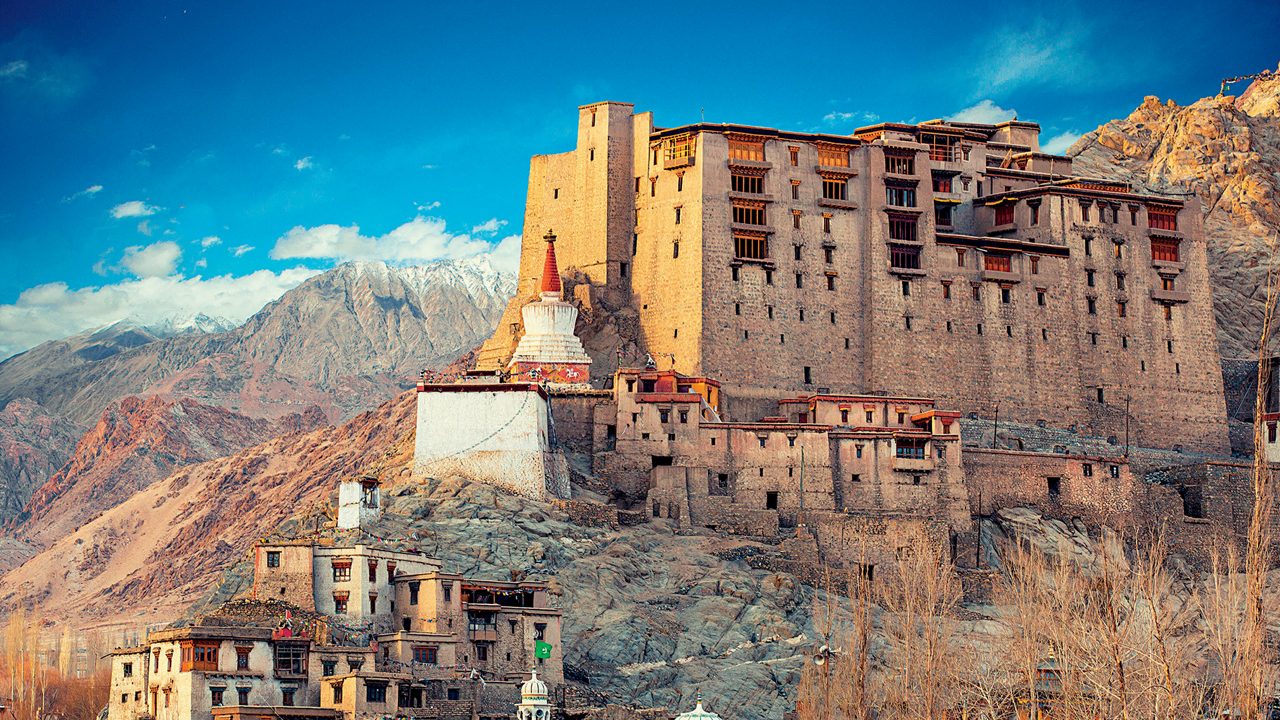
Leh Palace
Built in the 17th century by King Sengge Namgyal, Leh Palace is an iconic symbol of Ladakh’s royal heritage. Resembling Tibet’s Potala Palace, it rises majestically over Leh town. The palace offers panoramic views of the Indus Valley and surrounding mountains.
Inside, it houses a museum with ancient artifacts, jewelry, paintings, and thangkas. Though partially in ruins, its charm and history draw countless visitors. The palace especially looks stunning during sunset.
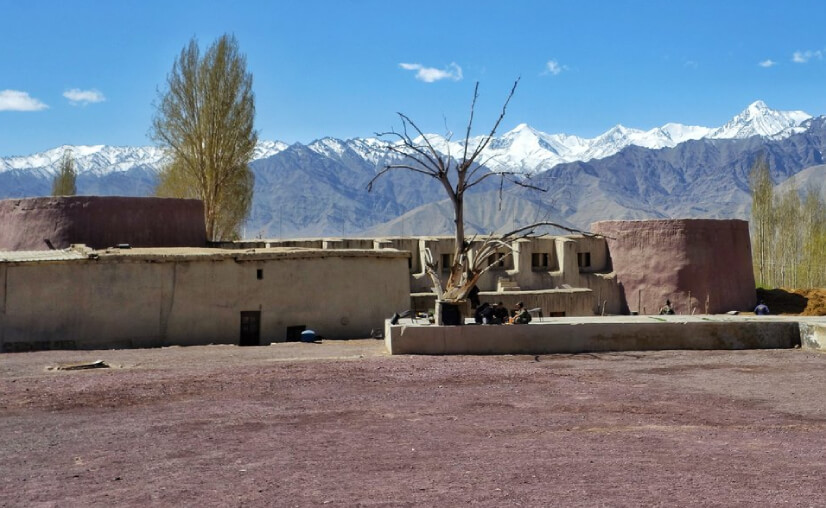
Zorawar Fort
Built by Dogra General Zorawar Singh in the 19th century, the fort was an important military post. It housed war equipment, coins, and treasures.
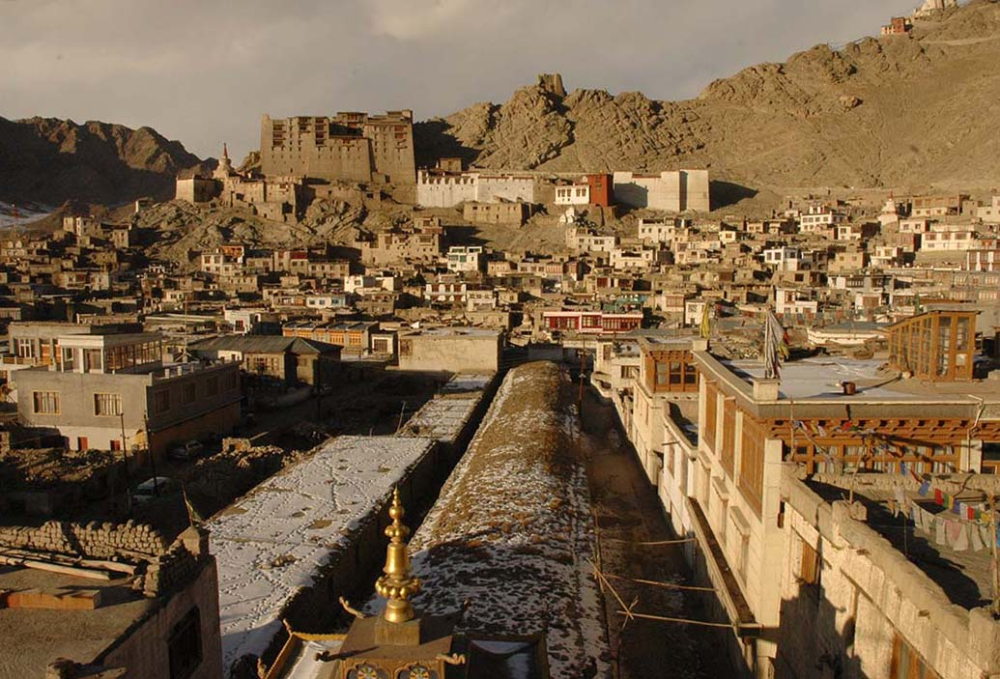
Old Town Leh
Walking through Old Town feels like stepping back in time with mud-brick houses, narrow alleys, and ancient architecture.
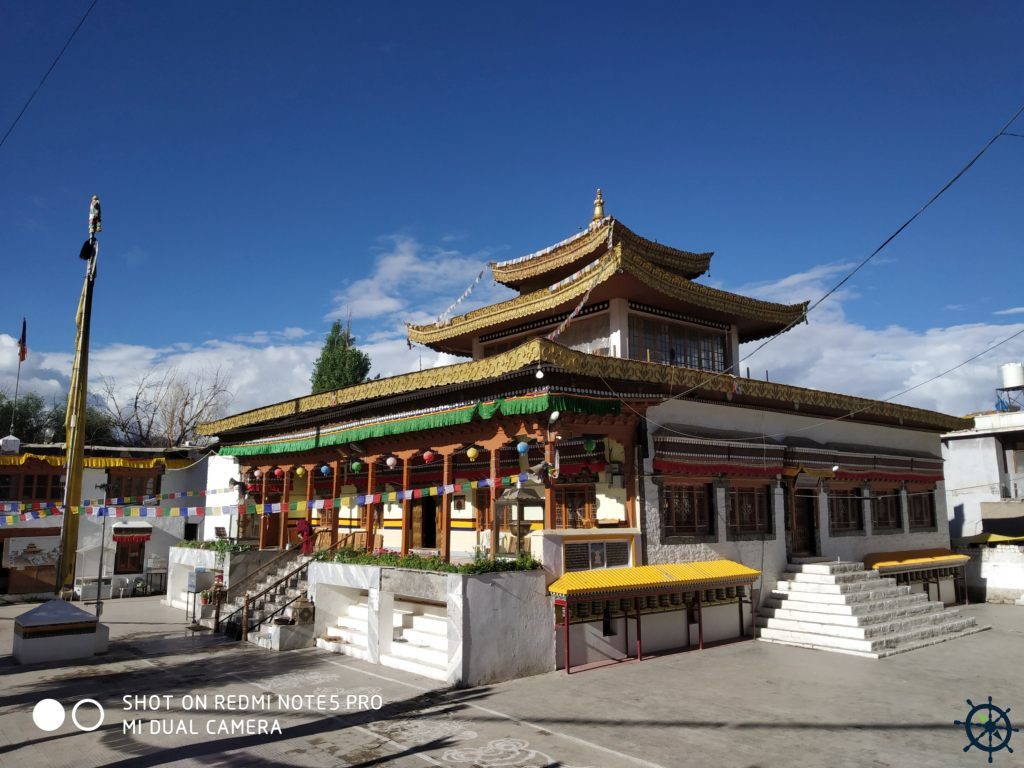
Chokhang Vihara
Situated in the heart of Leh Bazaar, this Buddhist temple is an important spiritual center. It features beautiful prayer wheels and a peaceful meditation area.
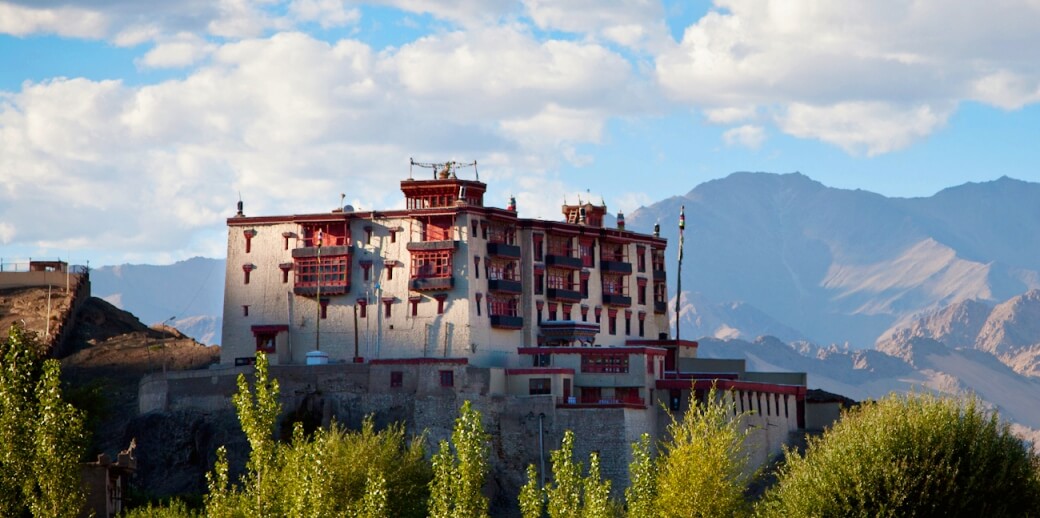
Stok Palace Museum
The residence of the royal family of Ladakh, Stok Palace is a blend of traditional and modern design. The museum inside houses thangkas, jewelry, and royal attire.
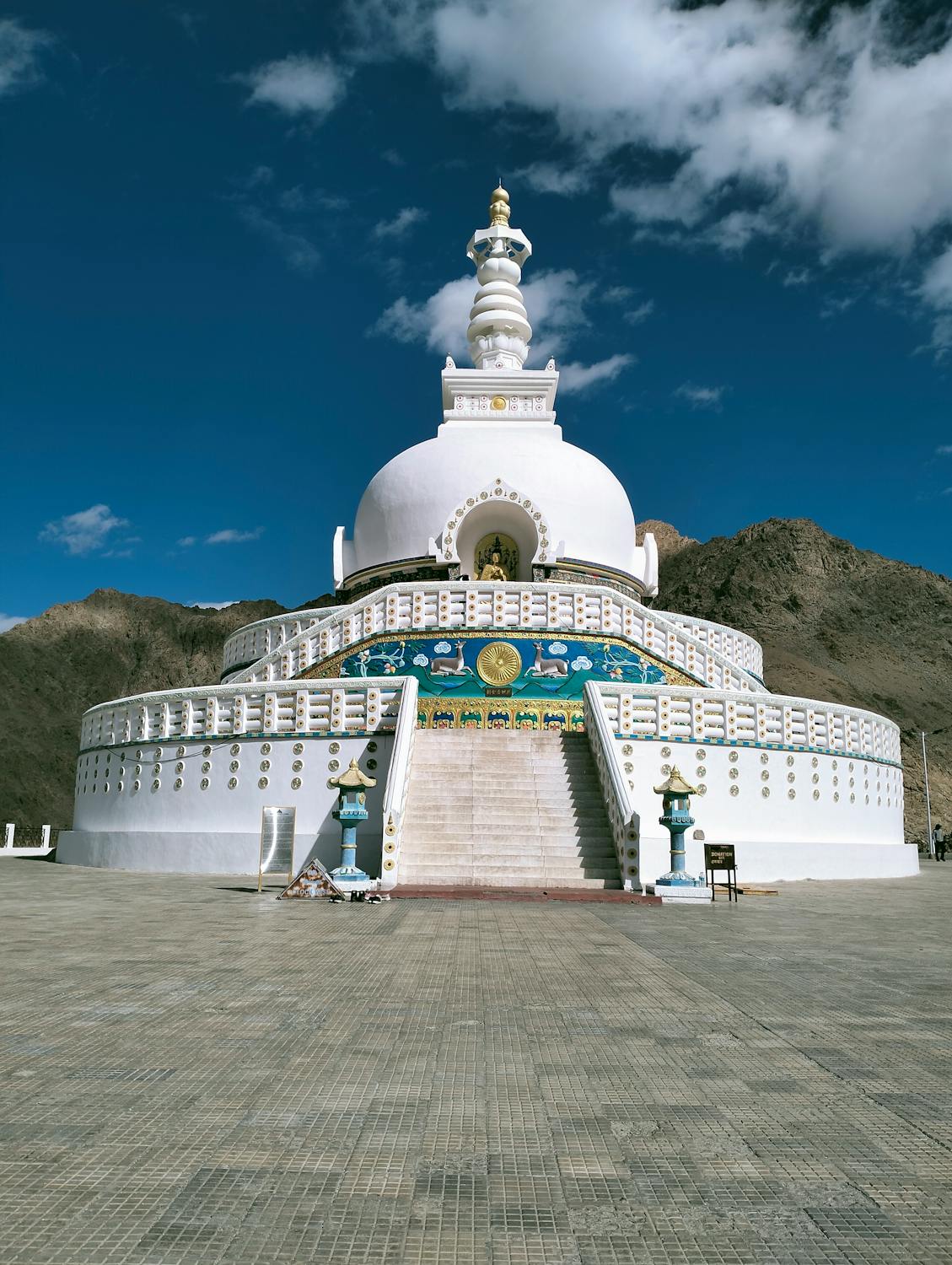
Shanti Stupa
Built in the 17th century by King Sengge Namgyal, Leh Palace is an iconic symbol of Ladakh’s royal heritage. Resembling Tibet’s Potala Palace, it rises majestically over Leh town. The palace offers panoramic views of the Indus Valley and surrounding mountains.
Inside, it houses a museum with ancient artifacts, jewelry, paintings, and thangkas. Though partially in ruins, its charm and history draw countless visitors. The palace especially looks stunning during sunset.
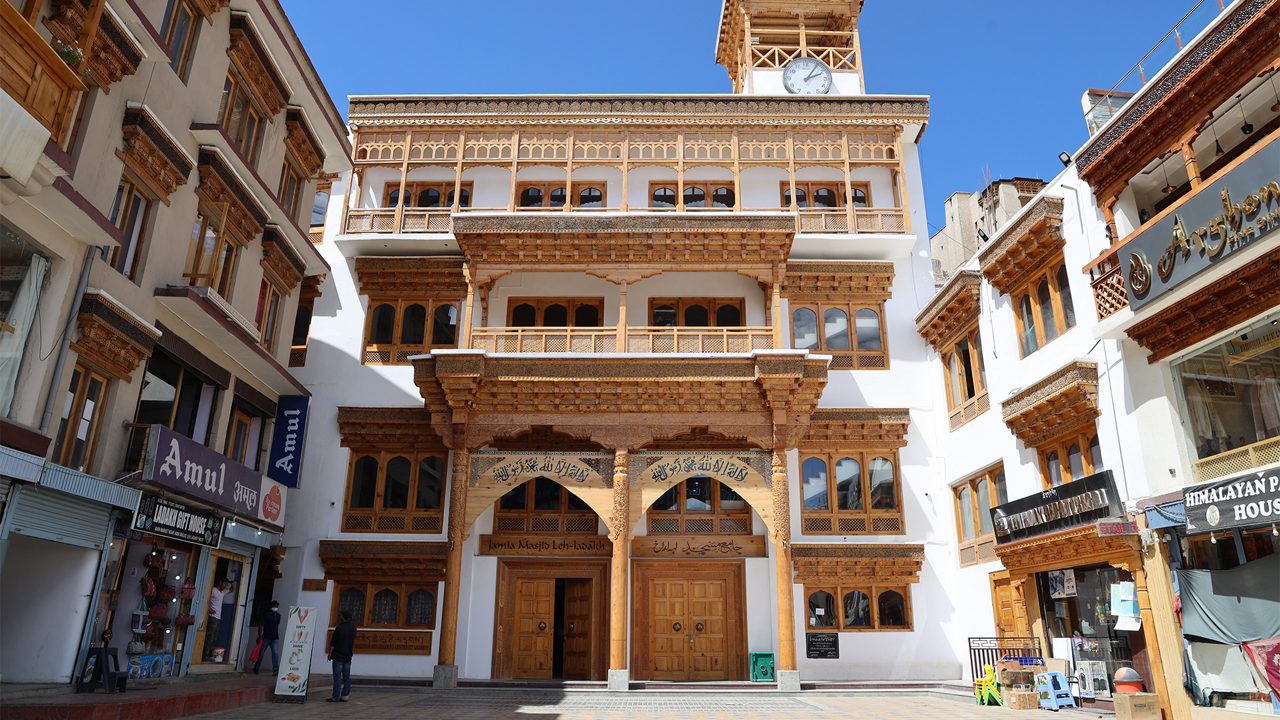
Jama Masjid Leh
A striking 17th-century mosque built during the reign of Aurangzeb. Located in Leh Bazaar, it is a symbol of Leh’s cultural diversity. The mosque is a simple yet historic landmark.
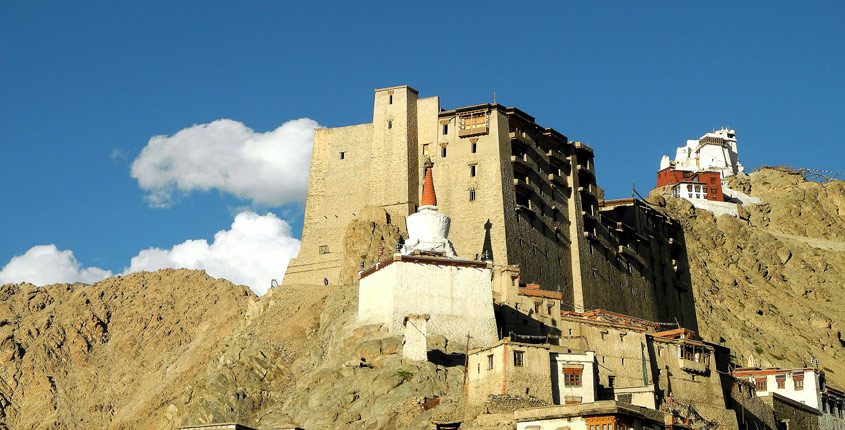
Victory Tower (Tsemo Fort)
Standing tall above Leh town, the Victory Tower is a historic fort built in the 16th century. It commemorates Ladakhi victories over enemies
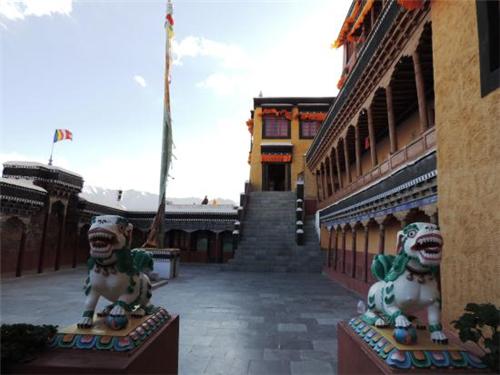
Leh Monastery Circuit
Leh is home to several small monasteries like Sankar, Namgyal Tsemo, and Spituk. Together, they form a monastery circuit easily explored within a day.
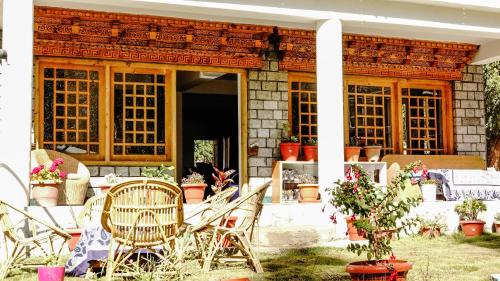
Ladakh Eco House
A heritage home showcasing traditional Ladakhi architecture. Visitors can learn about eco-friendly building techniques. It’s an authentic way to experience local life.
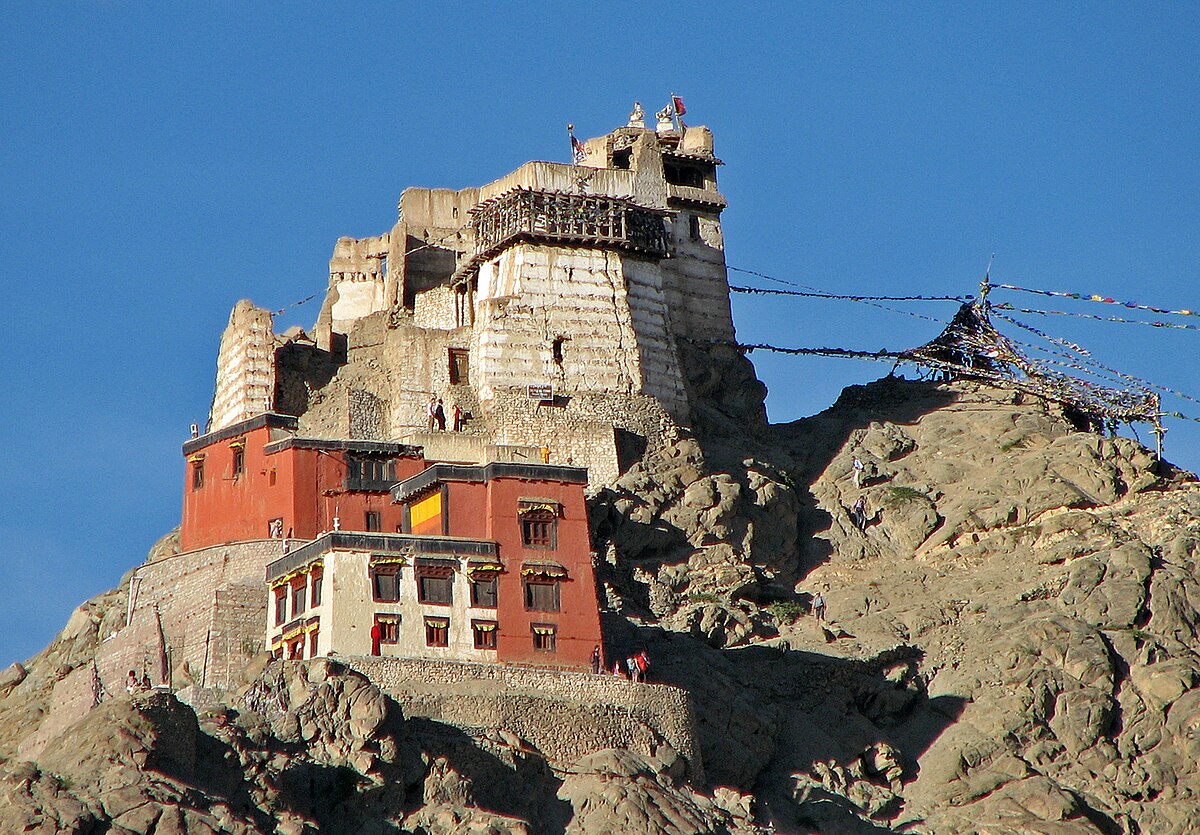
Namgyal Tsemo Monastery
Founded in the 15th century, Namgyal Tsemo Monastery is famous for its towering three-story statue of Maitreya Buddha. Perched high above Leh, it offers a commanding view of the town and the surrounding Himalayas.
The monastery houses ancient manuscripts, paintings, and sculptures. Monks from Sankar Monastery perform daily prayers here. The dramatic backdrop of barren mountains enhances its spiritual aura. It’s a quiet yet deeply spiritual place for travelers seeking history and peace.
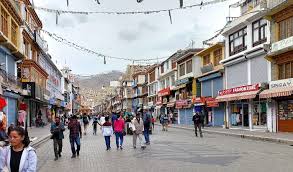
Leh Main Bazaar
A lively street lined with shops selling Tibetan handicrafts, pashmina shawls, and prayer wheels. It’s also a great place to try local cuisines at small cafés
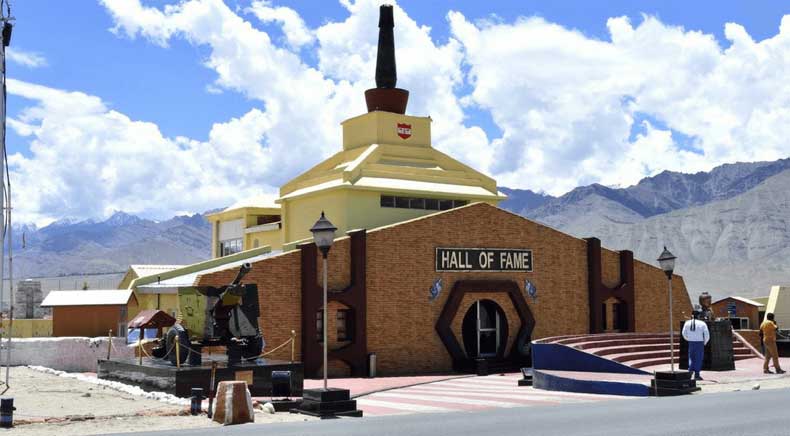
Hall of Fame Museum
A must-visit for patriots, this museum is maintained by the Indian Army and honors the martyrs of Indo-Pak wars. Exhibits include weapons, uniforms, and stories of bravery.
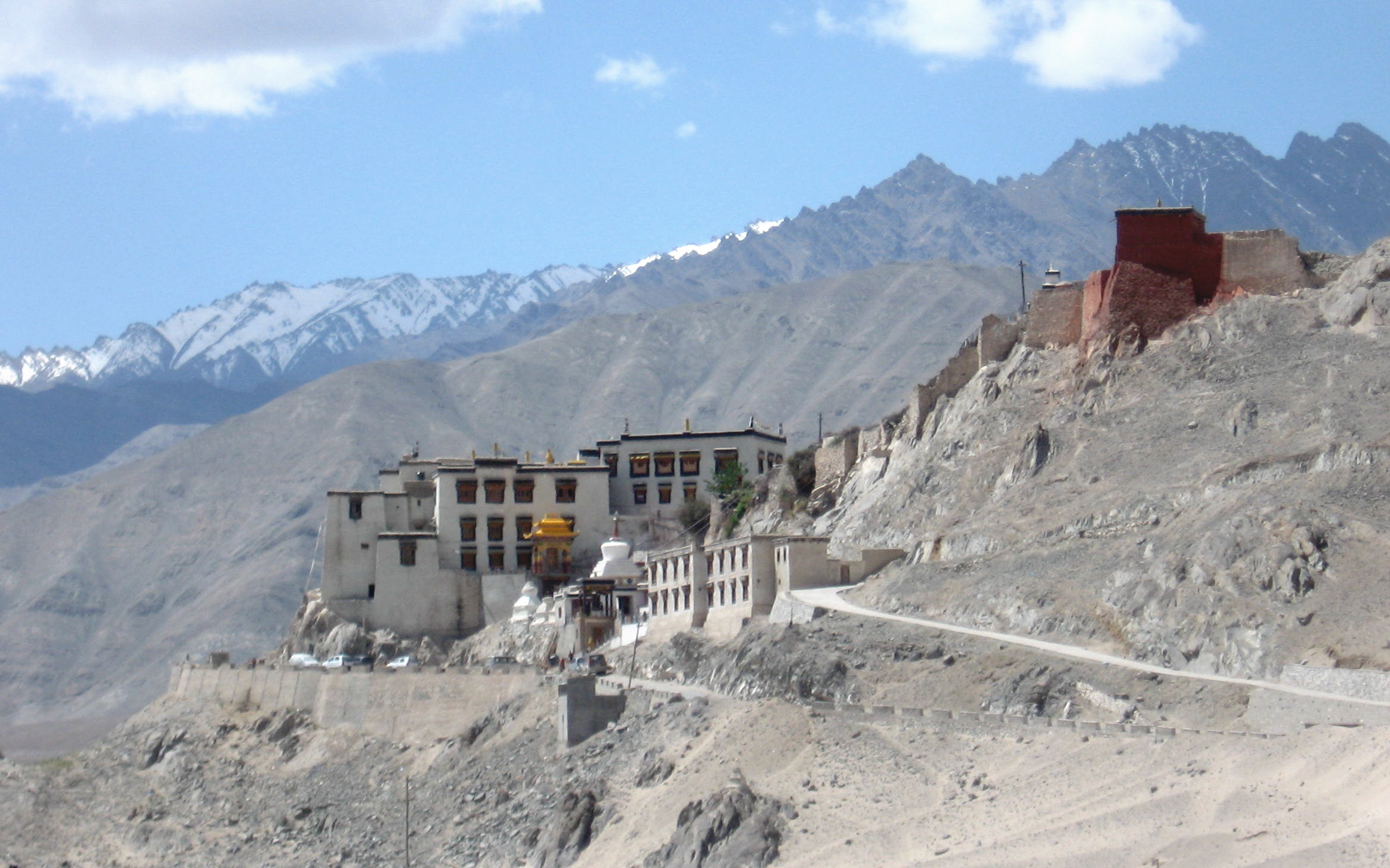
Spituk Monastery
Just a few kilometers from Leh, Spituk is one of the region’s oldest monasteries, founded in the 11th century. It houses a giant statue of Goddess Kali, unveiled only during the annual festival
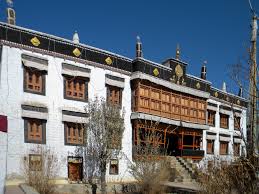
Sankar Monastery
Located just a short walk from Leh, Sankar Monastery is a small yet beautiful Buddhist monastery. It belongs to the Gelugpa sect and is a residence for around 20 monks. The monastery’s highlight is the statue of Avalokitesvara with 1,000 arms and 11 heads. Its peaceful courtyard and colorful prayer flags make it a calming spot.
Being less crowded, it allows visitors to connect with local monastic life. Evening prayers here are a soothing experience.
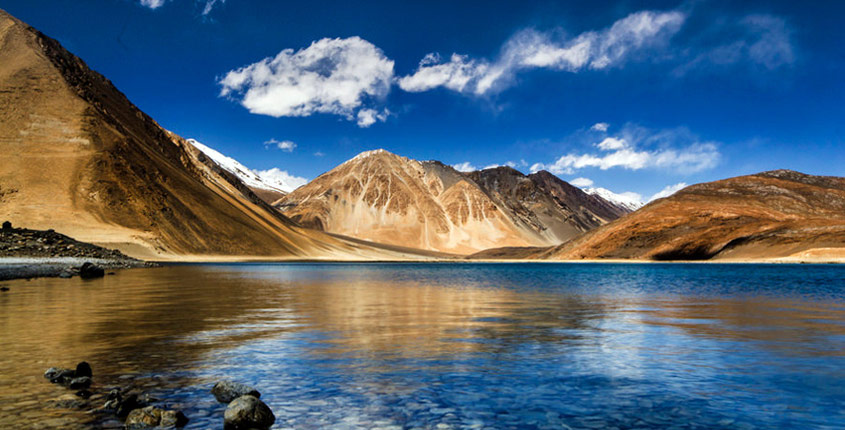
Pangong Lake
A breathtaking high-altitude lake stretching across India and Tibet. Known for its magical color-changing waters, it shifts from blue to green to golden depending on the light. The lake is situated at 14,270 feet and freezes completely in winter despite its saline water.
Visitors often camp on its banks to witness the starry skies at night. It is also a paradise for photographers and bird-watchers. Made famous by Bollywood films, it is one of Ladakh’s most iconic attractions.
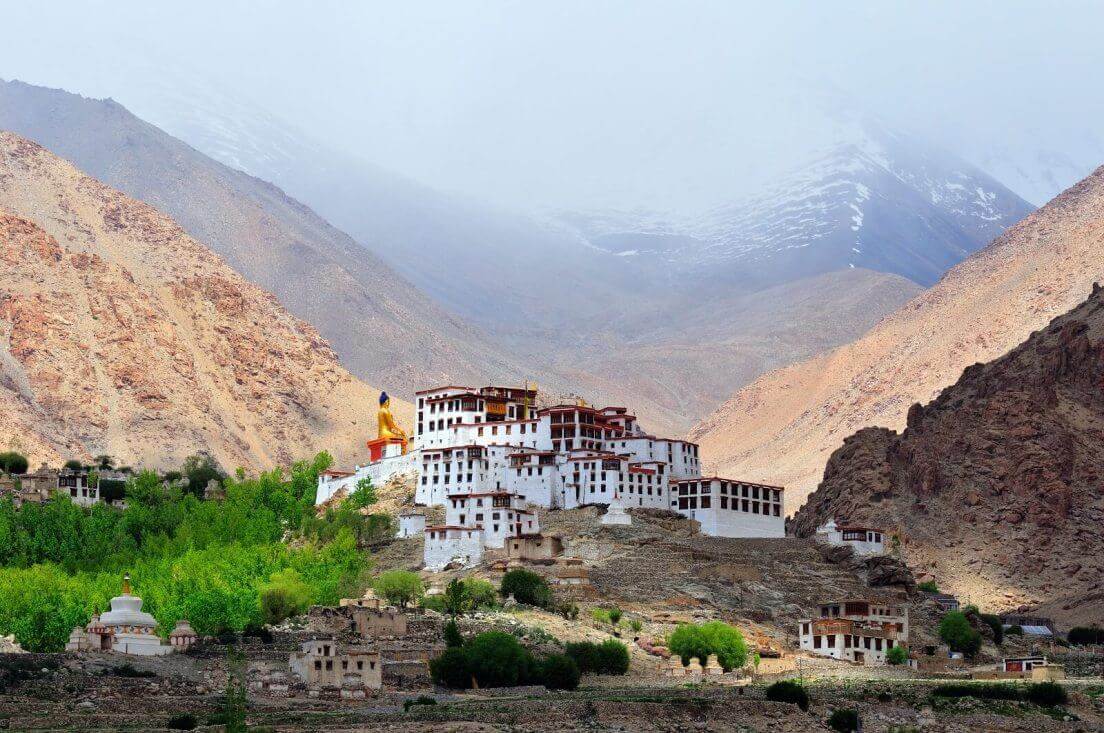
Likir Monastery
Known for its massive golden Buddha statue, Likir Monastery is a serene spiritual site near Leh. The monastery belongs to the Gelugpa sect of Tibetan Buddhism
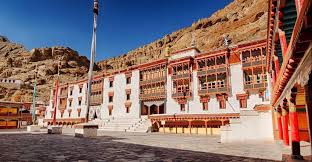
Hemis Monastery
The largest and richest monastery in Ladakh, Hemis is famous for its vibrant annual festival featuring masked dances.
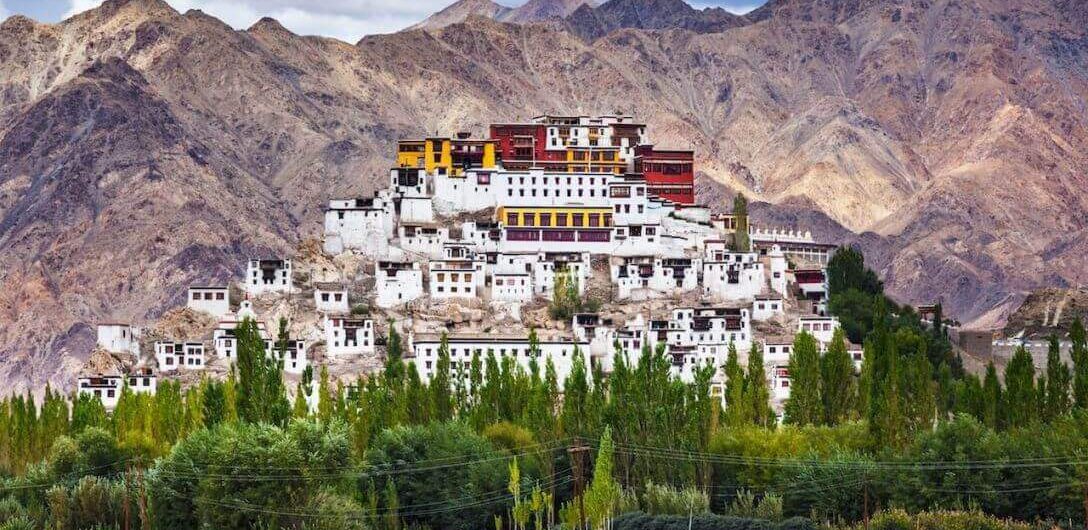
Thiksey Monastery
Often compared to the Potala Palace in Tibet, Thiksey is a 12-story monastery housing a giant Maitreya Buddha statue.
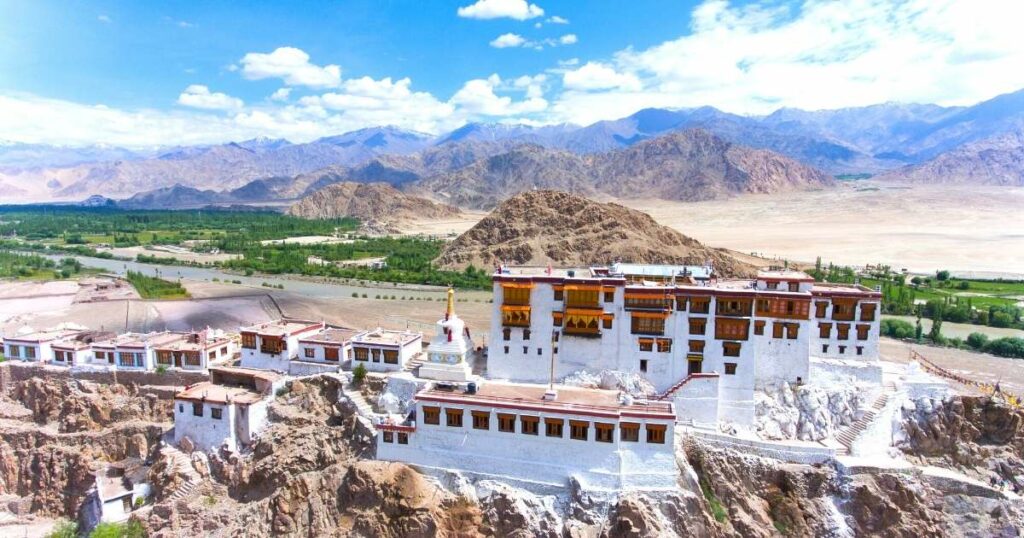
Stakna Monastery
Perched on a hill shaped like a tiger’s nose, Stakna Monastery is a striking landmark on the banks of the Indus River. It belongs to the Drugpa sect of Buddhism.
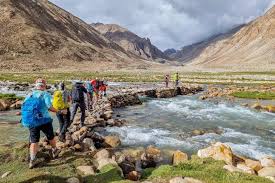
Nubra Valley
Known as the “Valley of Flowers of Ladakh,” Nubra is a unique blend of deserts, rivers, and lush villages. The Hunder sand dunes and the double-humped Bactrian camels make it truly special. Diskit Monastery, with its giant Maitreya Buddha statue, overlooks the valley.
The confluence of the Shyok and Nubra rivers adds to its charm. Apricot orchards and traditional Ladakhi villages enhance its scenic beauty. A journey to Nubra through Khardung La Pass is an adventure in itself.
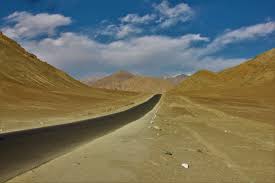
Magnetic Hill
A gravity-defying spot where vehicles appear to move uphill on their own. This natural phenomenon attracts curious travelers from around the world. Surrounded by barren mountains, it’s a fun photo stop.
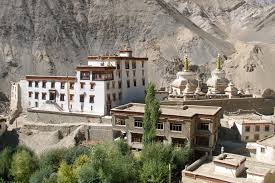
Lamayuru Monastery
Known as the “Moonland of Ladakh” due to its unique landscapes, Lamayuru houses one of the oldest monasteries in the region. Its annual masked dance festival is a spectacular sight.
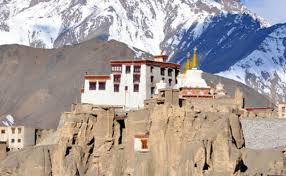
Alchi Monastery
Famous for its ancient wall paintings and wood carvings, Alchi Monastery is over a thousand years old. Unlike most monasteries, it is located on flat ground. Its artistic treasures are recognized as UNESCO heritage-worthy.
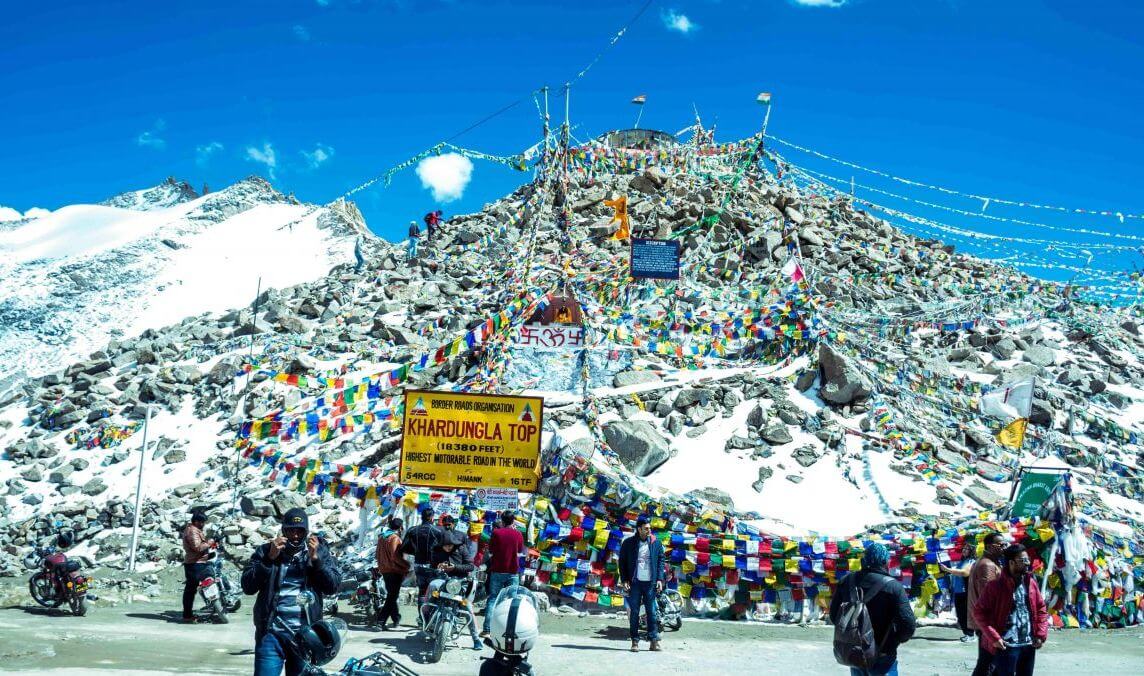
Khardung La Pass
At an altitude of 18,380 feet, Khardung La is one of the world’s highest motorable passes. It serves as the gateway to Nubra Valley and Shyok Valley. Bikers and adventure seekers consider crossing Khardung La a lifetime achievement.
The pass is lined with fluttering prayer flags and army posts. Despite thin oxygen levels, the panoramic views of snow-covered mountains are awe-inspiring. It is both a strategic military route and a dream for road-trip enthusiasts.

